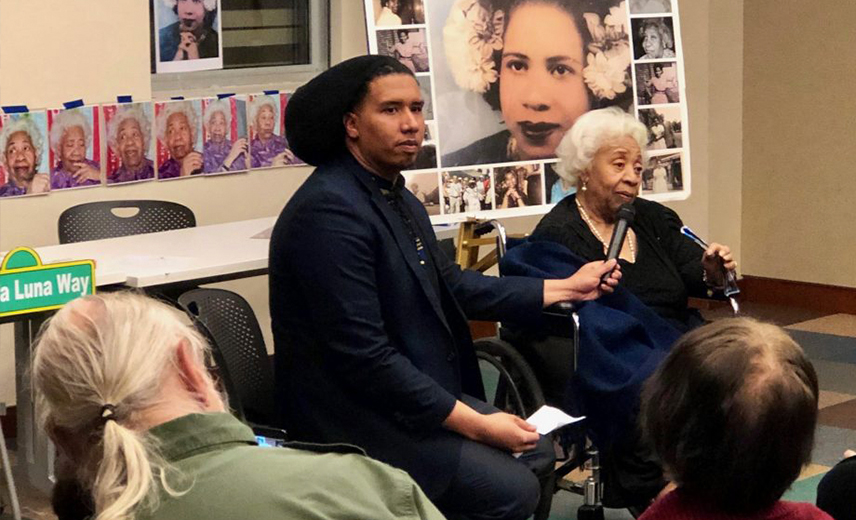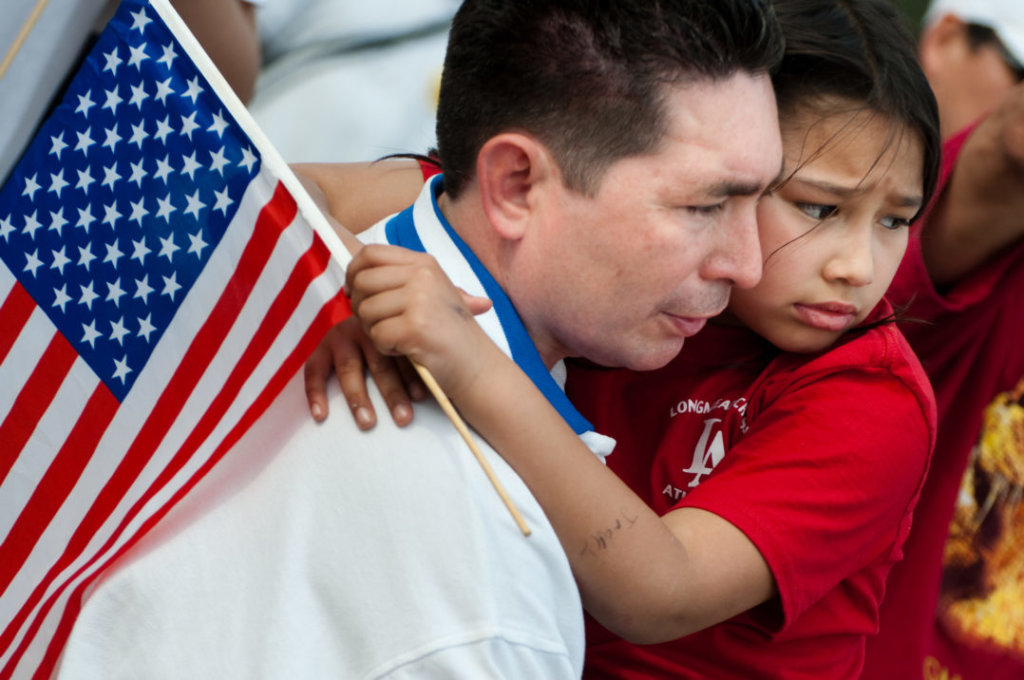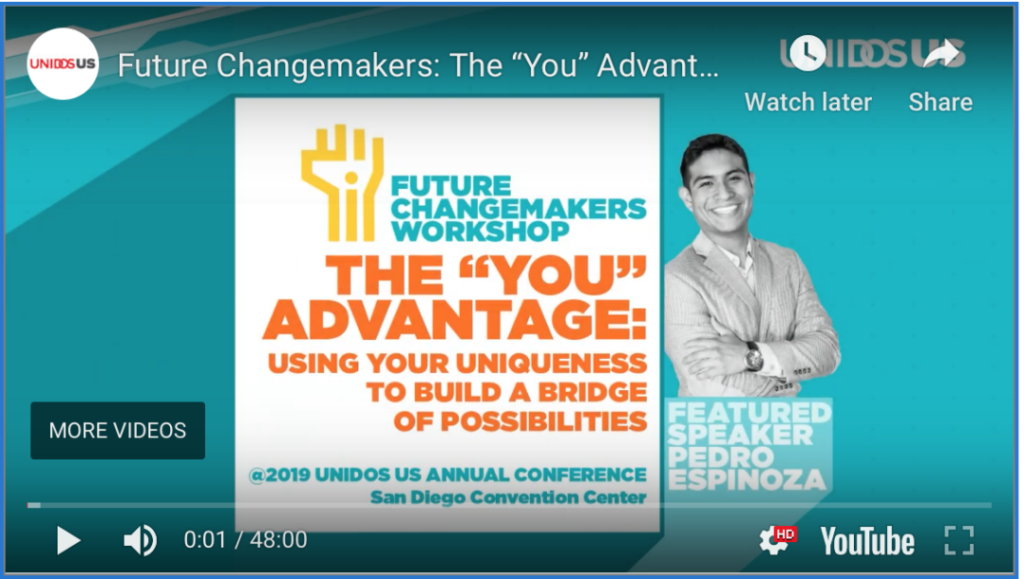DC AfroLatino Caucus Founder Manuel Mendez Offers Ideas On How to Learn More About Afro-Latino History
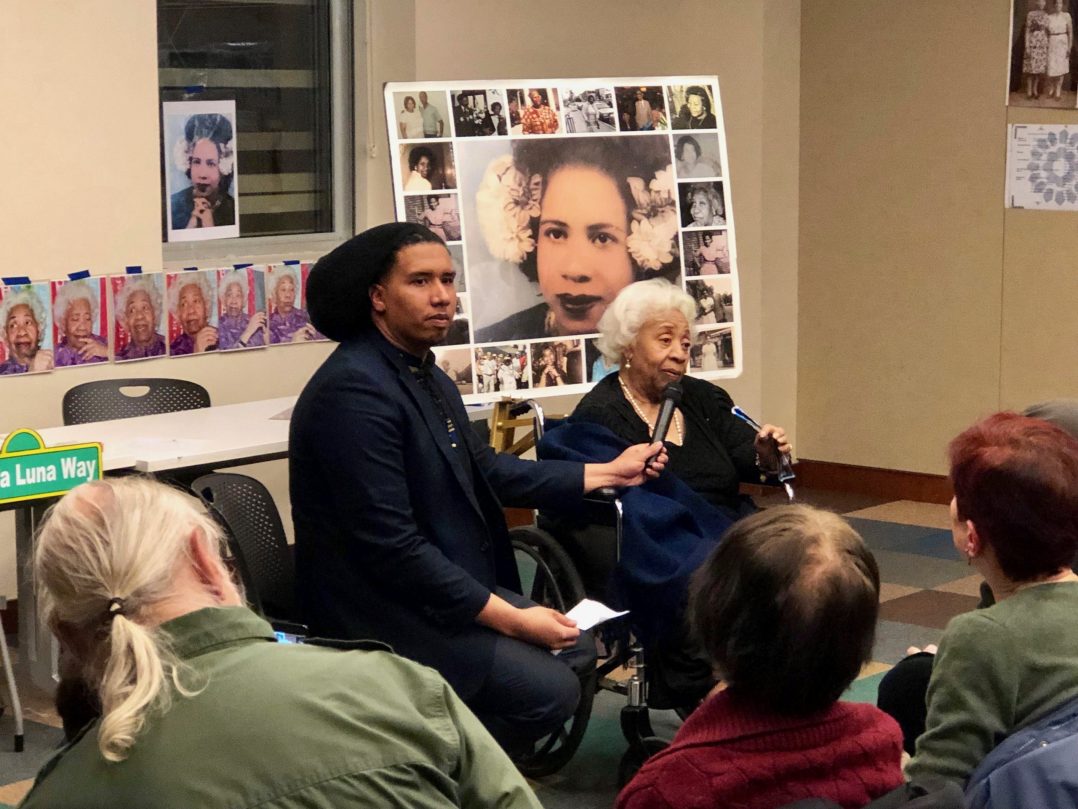
Manuel Mendez grew up always knowing his Black and Latino identity, but even in Washington, DC, a city affectionately called “The Chocolate City” for its historically large Black population, he spent a lot of time educating others.
Sometimes he’d have classmates over to his house to try a plate of rice, beans, and chicken, which could then lead to a discussion about his Spanish surname, his Dominican heritage and a gentle reminder that ships carrying people stolen from Africa docked all across the Americas. Today Mendez is the founding director of the area’s DC Afro-Latino Caucus, and he uses the public library in the city’s Mt. Pleasant neighborhood, a community that once hosted many of the capital’s Latin American and Caribbean embassies, as a meeting space for special educational events.
ProgressReport.co kicked off Black History Month by asking Mendez to share how he made Afro-Latino history lessons into a career, and how others like him can do that in their own communities.
Q: You were growing up in the District of Columbia during the late 1990s and early 2000s, at a time when the city was just beginning to invest more money into public works like new Metro lines. That, of course, prompted a lot of affluent suburbanites, often White ones, to move back into what was then referred to as the “inner-city.” Today, there are about as many White people in what was for decades a predominately Black city. How did that transition shape your worldview?
A: I went to Bell Multicultural High School located between DC’s Mt. Pleasant and Columbia Heights neighborhoods, and I was in a group called the Youth Action Research Group. Affordable housing was becoming a big problem in the area, and it was one of the issues affecting young people. When I graduated, I went to Antioch College in Yellow Springs, Ohio—a big activist hippie school—and I majored in Africana Studies with a focus on communications and documentary filmmaking. When I came back home, I wanted to give back, so I became a youth coordinator at the community childcare and youth outreach program Centro Nía working mainly with Latino youth, many of whom were dealing with their Afro-Latinidad.
Then Arturo Griffiths, an Afro-Latino of Panamanian descent who is a longtime advocate of DC statehood and the executive director of Trabajadores Unidos of DC,encouraged me to go to the DC Afro Latino Taskforce meeting at the mayor’s Office on Latino Affairs. They had a task force where a lot of Afro-Latino activists had been trying to tell our stories. I was the youngest there, so at first, I was just learning the objective of the taskforce and how they went about finding ways to bring visibility to our issues in the Black Latino community. This is where I also learned from many Afro-Latino activists within the local community such as Dominican-born activist Casilda Luna, a major proponent of affordable housing and the founder of the yearly Hispanic Festival now known as FiestaDC; Vicky Leyva, Founder of the Asociación Cultural Afro-Latina y La Diaspora and President of Asociación Nuestro Peru USA; and Roland Roebuck an Afro-Puerto Rican activist.
Folks don’t know the story of Afro-Latinos in DC. The story has been intentionally put to the side, so we decided that’s what we were going to focus on. Here in DC, there’s a rich history of Afro-Latinidad setting the foundation for the Latino community that had their greatest impact in the 1970s. Most of the oldest Latino-serving organizations that are here today thanks to the contributions to these Afro-Latinos who came to DC, and became part of the change to have their voices heard. For example, Luna founded the Vida Senior Center, and Griffiths founded the Afro-Latino Institute, and the Latin American Youth Center
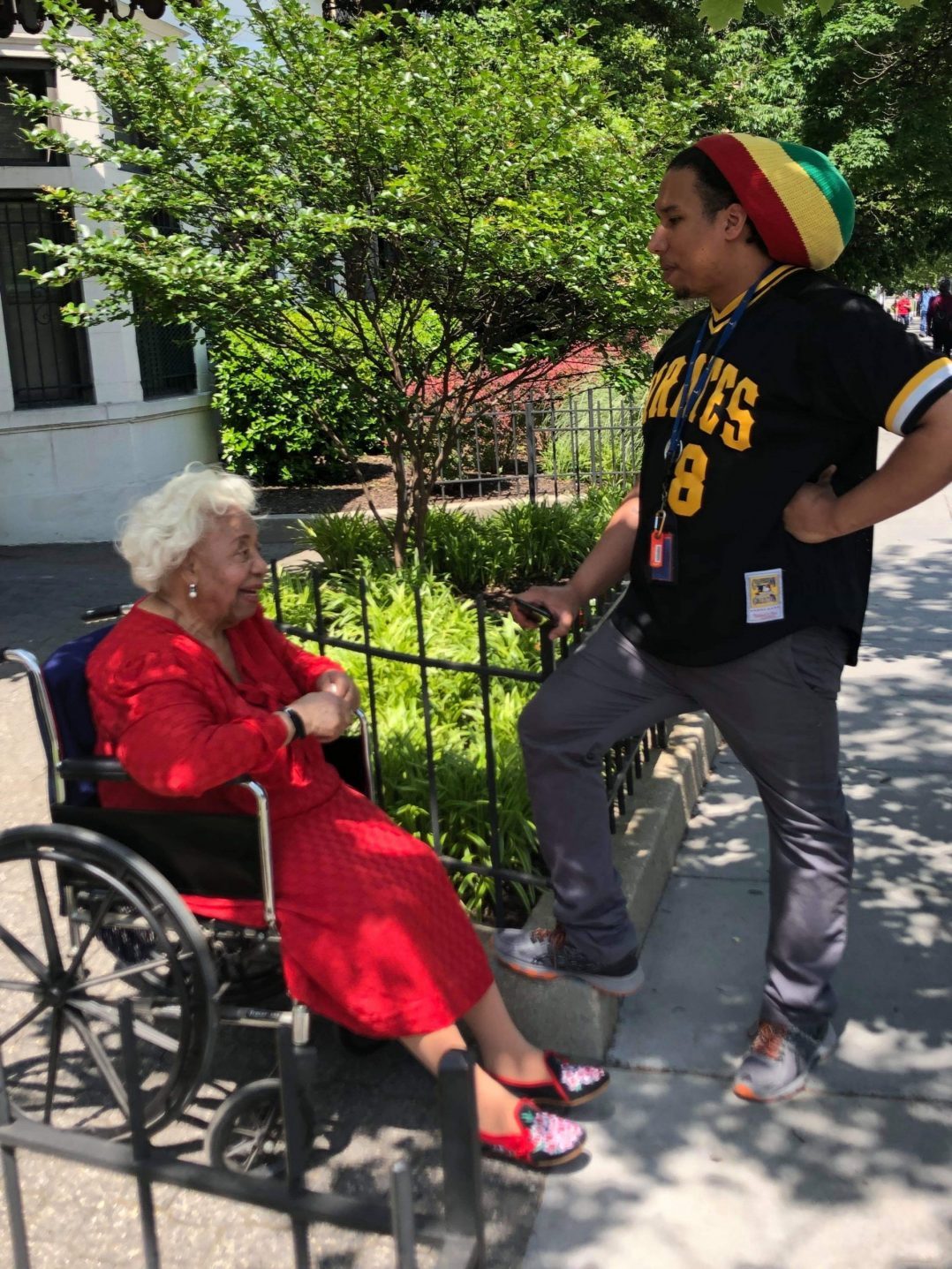
Out of that task force came the DC Afro Latino Caucus in 2016, which was founded to improve the quality of life of Afro-Latinos in DC and create visibility of the contributions of Afro-Latinos in DC; and bringing it to the collective community. I became the one of the founding members and initially the Vice President of the organization in conjunction with the Mayor’s Office of Latino Affairs (MOLA) and some of the activists I’ve already mentioned. Today as president, I coordinate educational programs showcasing the wealth of local Afro-Latino history and lobby with local government for the Afro-Latino community. Currently, we are working to have Casilda Luna honored with a street named for her. Also, this month I am collaborating with MOLA to highlight every day Afro-Latino community heroes. We also created a podcast, CarasLindas podcast, where we are able to have firsthand narratives from scholars, artists, and Afro-Latinos with a variety of backgrounds. Catch our broadcast on Full Service Radio at the Line Hotel in Adams Morgan, every Friday at 4 p.m.
One of the first books I found was a memoir called Black Cuban, Black American in which Evilio Grillo, a Cuban who grew up in Ybor City outside Tampa, Florida talks about how White folks during that time treated him like an African American. Because of this, he takes on Black American culture. Then he goes on to talk about being Afro-Latino in Washington, DC.
Q: Interesting. So he’s born in Ybor City, a community of Cubans who arrived not after the island’s 1959 Revolution but in the early 1900s as tobacco rollers, then he moves to Washington and begins a life of civil rights advocacy. Tell us more about that.
A: In 1936, he graduates from DC’s historically black high school Dunbar, which is known for graduating people who would become famous judges, professors, economists, and philosophers—folks who really contributed to Black culture.
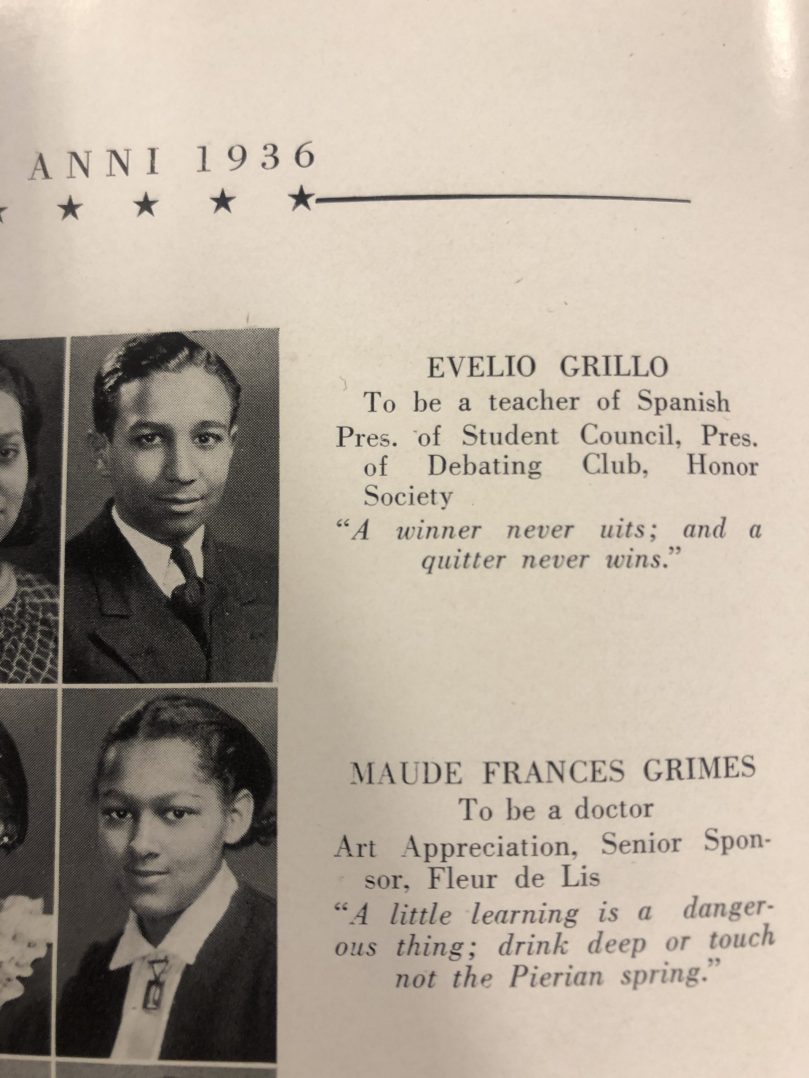
Q: Evilio Grillo’s story seems like an excellent way of showing that Afro-Latinos have been in a community like Washington, DC, for many, many years, even though we see larger numbers of them moving into the area about the middle to the latter part of the last century. You went to high school in the same community about a generation or two later, right at the turn of the new millennium. What was it like by the time you were growing up?
A: Well, first we always have to explain the Spanish—our names, then speaking the language- and then we have to explain to our African American cousins that the boat didn’t only land in Virginia and the Carolina Coast. But a lot of African Americans embraced my family and me. It has a lot to do with how open you are to teaching folks about your history—the similarities and the differences. I’d go and learn about their go-go music while telling them about Celia Cruz, Ismael Rivera, and bachata.
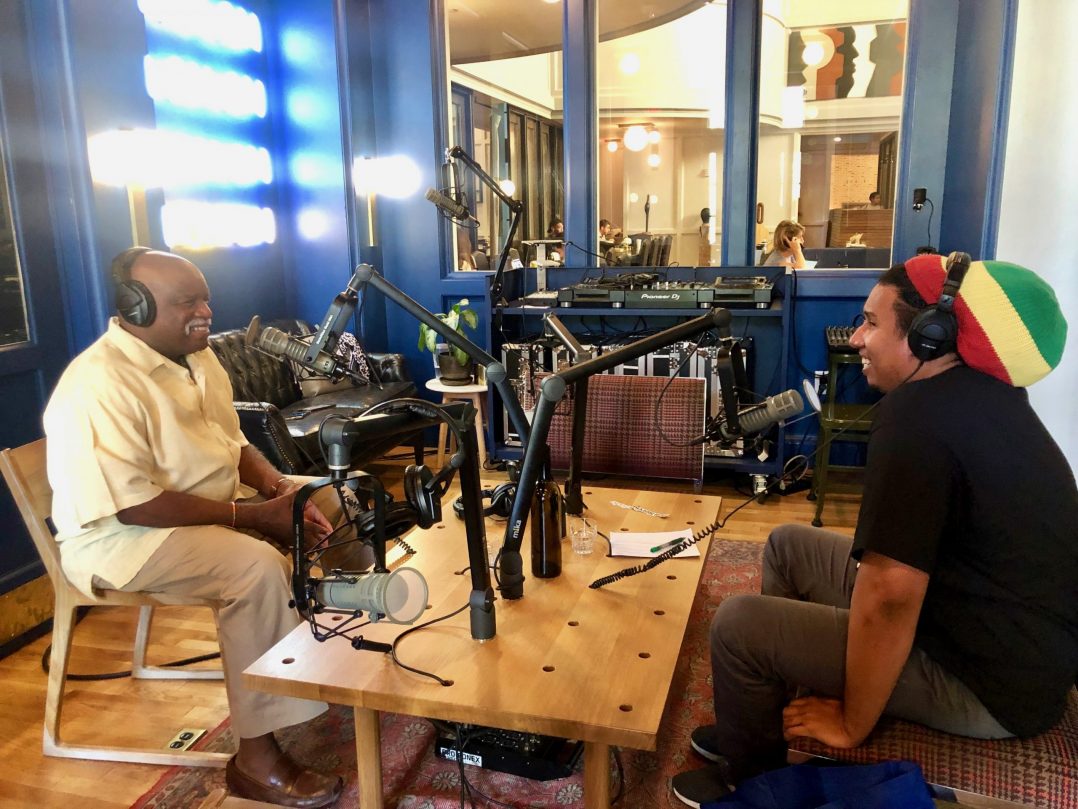
Q: So by the time you arrive in high school in the 1990s, gentrification is starting and you and your classmates become more civically engaged, fighting for housing rights for people of color. Today you’re helping that community and the general public learn about Afro-Latinos and how to support them. Let’s say a delegation of high school or college students is coming to Washington, DC, and wants to know more about Afro-Latino history. In addition to visiting the National Museum of African American History and Culture, what are some ways students can engage organizations like yours to learn more?
A: They should go to U Street, which was once the Black Broadway. A lot of African American artists performed there. In fact, jazz legend Duke Ellington had Afro-Latinos in his band. Columbia Road is another place you’d find Afro-Latinos, and not far from there, in Malcom X Park. On city maps, it’s listed as Meridian Hill Park, but the locals have always considered it a place of Black culture and activism. There you’ll find drum circles on Sundays and Afro-Latinos playing Latin American music. And in September, there are always Afro-Latinos at the DC Latino Festival here in Mt. Pleasant. They can also come pay me a visit at the Mt. Pleasant Library. I sometimes organize tours, as does our partnering organization Hola Cultura, which promotes Latino arts and culture in the District.
Q: UnidosUS has several youth leadership programs, and many of these young advocates have the chance to visit DC for the UnidosUS Changemakers Summit in March. What are some of the key issues they could be working to advance for Afro-Latinos?
A: I think when folks speak about undocumented immigrants, Afro-Latinos, and others from the African diaspora get lost in the discussion. Folks in Congress really need to pay attention to them. And long-term, we need more representation in all levels of organizations, and we need more folks to run as political candidates. because not enough effort is being placed on our issues. For example, we have enormous public health and housing issues. No one pays it no mind, no one makes it a topic. I mean, I make sure to do it here, but I can only control the spaces that I’m in.

Q: So in terms of starting from the space you’re in, what can other Afro-Latino students do in the communities where they’re located in this country to create better awareness and advocacy? What do you do, for example, if you’re an Afro-Latino in a place like Arkansas, where there are probably a lot less Afro-Latinos than in a place like Washington, DC?
A: Well, find out why you’re in Arkansas. One of the first things I have to do is find out why, for example, some Latin Americans chose to come to Washington, DC. You know, a lot of embassies opened mid-way through the last century so a lot of diplomats brought their nannies and their servants, who eventually brought their families, and people stayed. That’s one of the ways I got to be here. So we need to start looking at our neighbors and being like “you’re important, let me interview you, let me see why you’re here.” Go out and collect those stories and experiences, talk to the elders.

